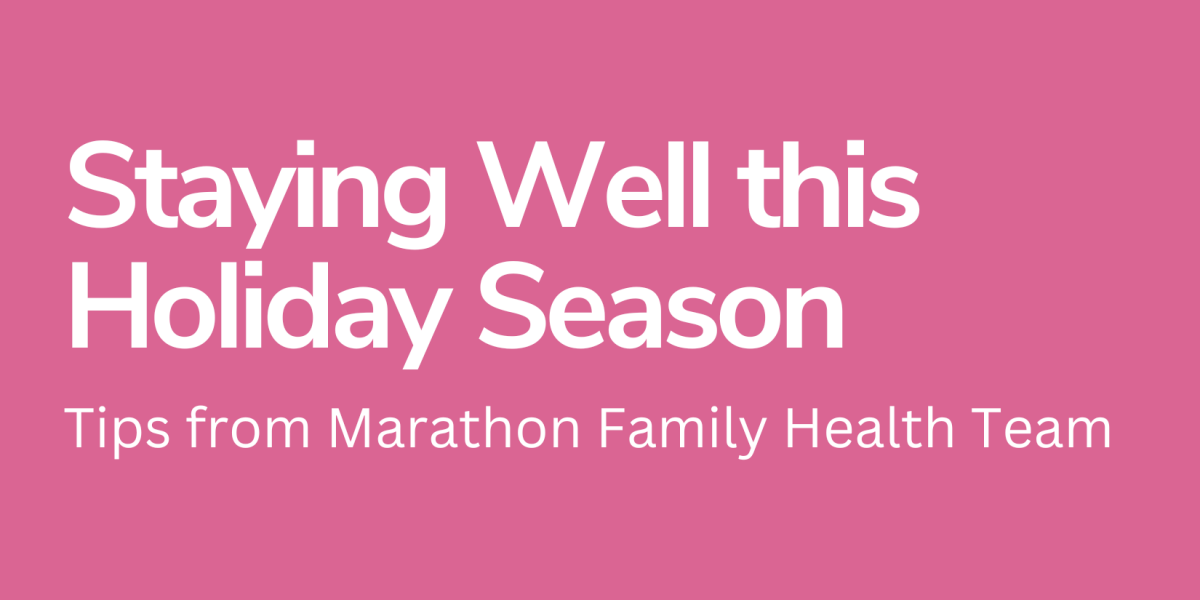The holiday season is upon us. While it can be a joyful and relaxing time for many, for others it can be a time of high demand and difficult emotions. The holidays can be emotionally charged and stressful at the best of times but, these days, it feels more important than ever to take care of yourself and your mental health. To improve your general sense of wellbeing throughout the season, consider taking the time to care for yourself each day by applying one or more of the tips below.
Tip #1 – If you find yourself feeling overwhelmed regarding social events or other obligations, it can be helpful to set boundaries. Setting boundaries is about identifying your limits, paying attention to your needs and learning to say “no” to things that bring on stress or other negative emotions. Give yourself permission to do what is best for you this season without feeling guilty about it.
Tip #2 – Managing stress during this time of year may seem like an impossible task. However, the great thing about holiday stress is that it’s predictable, which gives you the opportunity to plan ahead to minimize the amount of stress you experience. Scheduling “you” time can encourage you to take some time to rest and recharge in whichever way you find most effective, for example, journaling, meditation, yoga, deep breathing or spending time in nature.
Tip #3 – Not all aspects about the holiday season will be merry and bright and that’s okay. Practicing gratitude can help keep you in the present moment while allowing you to recognize all there is to still be grateful for. Consider keeping a gratitude journal by taking a few minutes every day to write down at least three things you appreciate. For example, you can be grateful for having enough food to eat, getting a phone call from a friend or the holiday lights that make you smile.
Tip #4 – The holiday season can often lead people to experience feelings of loneliness. Despite the name, you don’t always have to be alone to feel lonely. For example, it’s possible to feel alone in a room full of people but aren’t receiving the support or connection you’re looking for. It’s also possible to feel lonely when grieving or when you’re alone but want to be with others. One of the best ways to deal with loneliness is to reach out and connect with others. This can include going for coffee with a friend, joining a local group that has similar interests as you, volunteering, or attending community events. It can be difficult to reach out when feeling lonely or isolated, but finding support and companionship in a way that is meaningful can be very powerful in reducing feelings of loneliness.
Tip #5 – Stress can interfere with the quality and quantity of your sleep, which explains why holiday-related stress can often make it difficult to get enough sleep. To maximize health benefits, adults should aim to get between 7 to 9 hours of sleep per day. To beat holiday sleep challenges, try the following strategies: maintaining a normal sleep schedule, avoiding heavy meals and caffeinated beverages before bed, avoiding screens for at least one hour before bed, and building movement into your day.
Tip #6 – Being active in some way will help give you energy, reduce stress, boost your mood, and improve your sleep! The most important part of making time to exercise is to plan ahead. Whether you are traveling or hosting family and friends, try taking some time to identify potential physical activity options so that you are ready for anything! For example, if you’re traveling, search for a fitness center, walking paths or snowshoeing trails in the area. You can also talk to your family in advance and suggest doing a physical activity together.
Tip #7 – Food impacts your physical and mental health. Building a healthy plate by filling at least half of it with vegetables and fruit, one quarter with whole grains, and the other quarter with protein foods; bringing healthy options to potlucks or get-togethers; eating mindfully and taking the time to enjoy your food; and eating regular meals are strategies that can help you eat well and feel well. Food is an important part of many holiday celebrations so remember to focus more on the occasion and company rather than the food. Consuming alcohol in moderation is also important to avoid negative impacts on mood and overall health.
Tip #8 – This year, there are no restrictions in place to limit in-person gatherings with loved ones, which is a welcome change for many. Enjoy the holiday season and all of its related festivities while being mindful of the simple steps that can be taken to reduce your risk of becoming ill with one of the many circulating viruses (e.g. cold, flu, covid, RSV). Respiratory illness prevention strategies include: staying home when sick, wearing a mask in crowded areas, improving ventilation whenever possible, frequent hand-washing and staying up to date with vaccinations.
Instead of waiting until January 1st to start your New Year’s resolution, try making a holiday resolution by choosing at least one goal that is important to you and that you are confident you can stick with. Small steps can make a big difference in helping you feel your best this holiday season and beyond.



